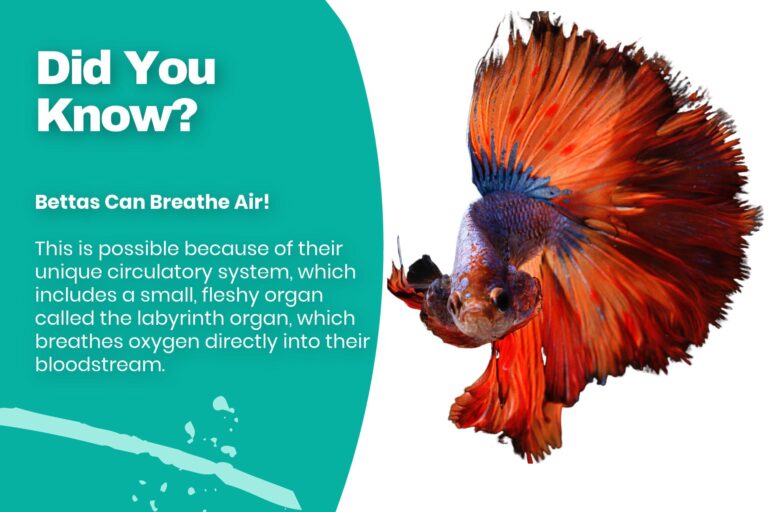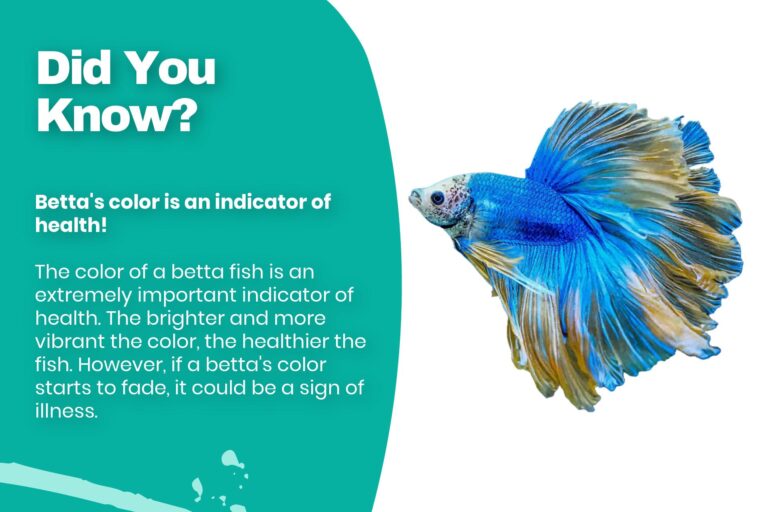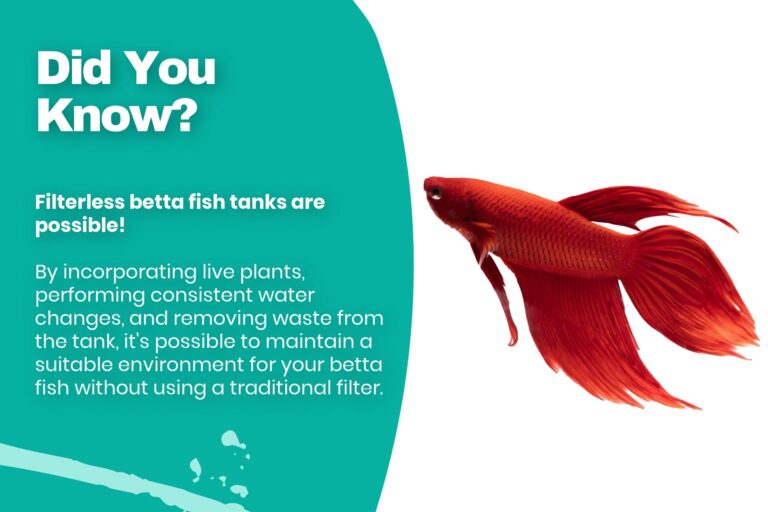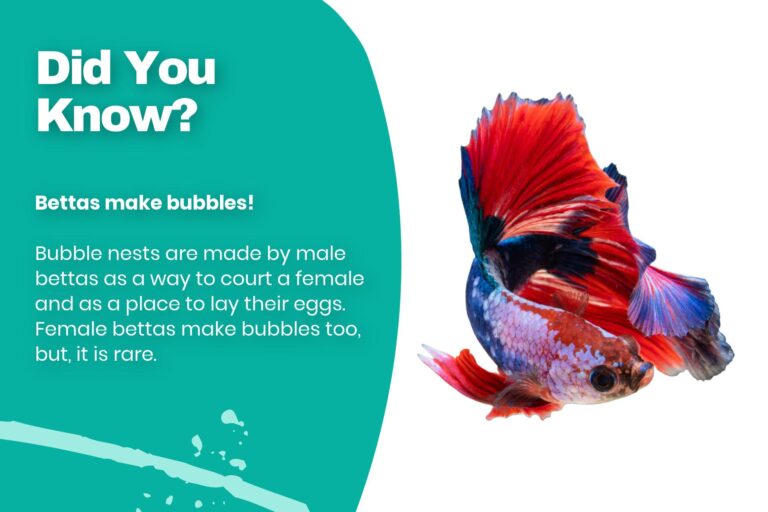Top 7 Most Common Betta Fish Diseases: Recognizing, Treating, and Preventing Illness
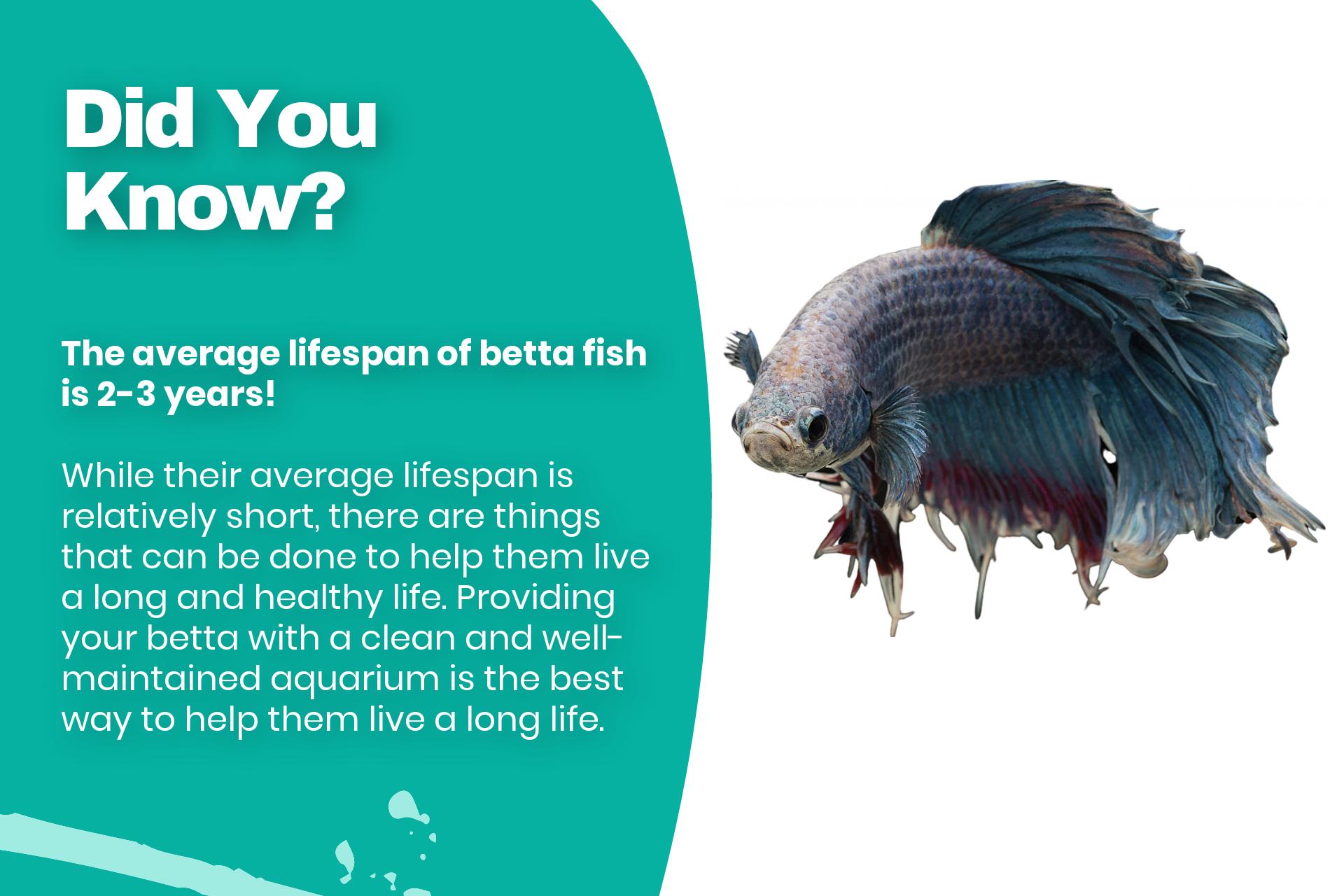
Betta fish, also known as Siamese fighting fish, are popular aquarium fish known for their vibrant colors, long fins, and aggressive behavior.
These freshwater fish are relatively easy to care for and can make great pets for beginners and advanced fish owners alike.
However, like any other pets, betta fish are prone to illnesses and diseases that can affect their health and overall wellness.
As a betta owner, it is crucial to learn how to recognize and treat common betta fish diseases.
Table of Contents
Quick Answer
Betta fish are relatively hardy fish, but they are still susceptible to various illnesses and diseases, including fin rot, dropsy, velvet, and swim bladder disease, among others. As a betta owner, it is essential to recognize the symptoms of these common betta fish diseases and treat them promptly. Providing your betta fish with optimal care, including a clean and adequately sized tank, balanced diet, and appropriate water parameters, can help prevent illnesses. In case of illness or disease, isolate your sick betta fish immediately, and seek the best way to treat them.
Recognizing the Most Prevalent Betta Fish Diseases:
Betta fish can suffer from various illnesses and diseases, some of which are deadly if not treated promptly. As a betta owner, you must learn to recognize the symptoms of these common betta fish diseases and provide timely treatment.
1. Fin Rot and Tail Rot
Fin rot and tail rot are typically caused by poor water conditions or the presence of harmful bacteria in the aquarium. By keeping a close eye on your betta and providing regular maintenance, you can prevent many common diseases and illnesses for your freshwater friend.
You may notice that your betta’s fin and tail edges become frayed, discolored, or ragged, signaling the beginning of fin rot or tail rot. In more advanced stages, you might even observe a small white or black film on the affected areas. If left untreated, these conditions can progress and deteriorate the betta’s swim bladder, putting their overall health at risk. Therefore, it’s crucial to act promptly in treating your sick betta fish.
To keep your betta fish healthy, maintain pristine water conditions by changing it regularly and avoiding overfeeding. Fish food that remains uneaten can decay and negatively impact water quality, increasing the potential for common betta diseases. Additionally, be cautious when introducing new fish or plants to your aquarium, as they can potentially carry unwanted pathogens. Quarantining new additions can help protect your existing Siamese fighting fish family.
If you believe your betta fish is suffering from fin rot or tail rot, don’t panic. The best way to treat these diseases is by maintaining a clean environment, with proper water quality and by applying over-the-counter antibacterial medications available at your local fish store. In some cases, it may also be helpful to isolate your sick betta until they are fully recovered to prevent the spread of the disease, as it can be highly contagious among aquarium fish.
2. Dropsy
Dropsy is a common disease that can affect your betta fish. Also known as edema, it is a disorder of the fish’s body that causes the build-up of fluid in the body of fish. Dropsy can be identified by the swollen and bloated appearance of the fish’s body accompanied by raised scales, giving the fish a “pine cone” appearance. Dropsy can be caused by a variety of illnesses, including swim bladder disorder, fish lice, fish fungus, and velvet. Dropsy can also be the result of an untreated bacterial infection such as fin rot, tail rot, or hole in the head disease. Dropsy is a highly contagious and can infect fish in the same aquarium, so it’s important to isolate your sick betta fish immediately to limit the spread of the disease.
The best way to treat dropsy is to diagnose and then address the underlying illness that is causing the fish to be sick. Dropsy is often a symptom of another disease or illnesses, so it is important to understand the symptoms and treatment options for various betta fish illnesses and diseases. Some common diseases and illnesses that can affect betta fish include swim bladder disease, white spot, velvet, fin and tail rot, and anchor worms. The symptoms of each illness can vary, but it’s essential to keep an eye on your betta fish to ensure you identify any potential problems early.
Provide your betta fish with proper fish care by keeping the aquarium clean and providing your fish with high-quality fish food. Betta fish are relatively hardy fish, but they can still become sick if their environment is not adequately maintained. Keep your betta fish healthy by feeding your fish a varied and balanced diet, and avoid overfeeding as this can lead to swim bladder disorder, which affects a betta fish’s ability to control its buoyancy in water. A sick betta fish may refuse to eat fish food, so if you notice that your betta fish is not eating, it may be an indication that something is wrong with your betta.
3. Ich
Ich, also known as “white spot” or “ichthyopthirius multifiliis,” is a common disease that affects betta fish and other aquarium fish. Being highly contagious, it’s essential to identify and treat ich as soon as you notice any symptoms to protect both your sick betta fish and other tankmates. Ich appears as small white spots on a betta fish’s skin or fins, making it hard for betta owners to miss. Keep an eye on your betta when you feed the fish as that’s the best time to check for white spots.
If your betta fish is sick with ich, one way to treat your betta is by using over-the-counter ich medication readily available at your local fish store. To help your fish fight the illness, you can also slightly raise the aquarium temperature to approximately 82°F, which speeds up the lifecycle of the parasite causing ich. Remember to isolate your sick betta in a separate treatment tank to prevent the spread of the disease. Consistently providing your betta fish with proper fish care, including clean water, the right temperature, a balanced diet, and appropriate fish food, can go a long way in preventing ich and other common diseases and illnesses.
4. Swim Bladder Disease
Swim bladder disease is a common problem in betta fish, also known as Siamese fighting fish. This illness affects a betta fish’s ability to swim and maintain buoyancy. Swim bladder disorder can be identified by symptoms such as difficulty swimming, floating at an odd angle, or struggling to reach the surface. If you’ve been keeping a close eye on your betta and notice that your betta fish is displaying these symptoms, it’s essential to act as soon as possible to ensure the health of your betta.
To begin treatment for swim bladder disease, start by providing your betta fish with the ideal environment. Keep your betta in a clean and stable aquarium, ensuring that water parameters are optimal. Betta fish care consists of maintaining water temperature (76-81°F) and quality to help prevent illnesses and diseases amongst betta fish. Also, check the fish food you’re feeding your betta. Overfeeding or feeding them low-quality food can contribute to swim bladder issues. Giving them smaller, more frequent meals can assist in managing swim bladder disorder.
5. Popeye
Popeye is an illness that affects betta fish and many aquarium fish owners may notice that their betta fish has developed it. The Siamese fighting fish, being a relatively hardy fish, can endure this common problem in betta fish, but it’s essential for betta owners to know the symptoms and treatment for such diseases and illnesses, including Popeye.
When diagnosing fish disease or illness, it’s important to notice that your betta fish’s eyes may appear swollen and protruding, probably indicating that your betta fish is sick. If you suspect that your betta is suffering from Popeye, it’s best to isolate the affected fish in a separate tank to ensure that the disease doesn’t spread amongst betta fish in your community tank. Betta fish diseases and treatment options may vary, but the best way to treat Popeye is to maintain excellent water quality and give your fish antibiotics like Kanamycin, following the directions on the container. Drain and clean the quarantine tank with a 50% water change daily. Meanwhile, don’t forget to maintain proper fish care, including feeding your fish appropriately.
6. Columnaris or Mouth Fungus
Columnaris, also known as mouth fungus, is one of the most common betta fish diseases. It usually affects a betta fish’s mouth, gills, and body, making it an unpleasant illness to deal with. If you notice that your betta fish is sick or acting unusual, it’s essential to look for signs of this fish disease, such as small white patches and injuries on their fins and body.
As a responsible betta owner, you should be prepared to recognize and treat columnaris in your freshwater aquarium fish. When it comes to fish care, prevention is your best ally; however, it’s not always possible to prevent diseases and illnesses from affecting your beloved siamese fighting fish. One of the first things you might observe when your betta has columnaris are fin rot and tail rot symptoms. This means there may be a fungus infection going on within the fish.
Once you confirm that your fish has the condition, the best way to treat and combat this common problem in betta fish is to use a suitable fungal treatment available at your local fish store. Make sure you follow the instructions to ensure your fish gets the appropriate treatment it needs. During this time, maintain optimal water conditions and monitor not only the affected fish but also other tankmates. This will help prevent the disease from spreading to new fish introduced to the tank or longtime inhabitants.
7. Velvet
Velvet is a common betta disease that can affect your betta fish’s skin, making it appear dusty or covered in a gold or rust-colored sheen. This fish disease is caused by parasites and is quite contagious, so it’s essential to monitor your betta fish care routine to prevent it from spreading throughout your aquarium.
You may notice that your betta fish is sick when it starts rubbing against objects in the tank, becomes lethargic or loses its appetite. The disease affects a betta fish’s fins as well, causing fin and tail rot in some cases. As a seasoned betta owner, it’s crucial to learn how to recognize and treat these diseases and illnesses. Early detection could save your betta’s life, as advanced stages of velvet can kill your betta, so swift action is necessary.
To treat velvet, first, you’ll want to quarantine the affected fish to prevent the illness from infecting other aquarium fish. Siamese fighting fish, or bettas, are relatively hardy fish, which means they can often recover from illnesses if given the right treatment. The best way to treat velvet includes increasing the water temperature of the quarantine tank to around 86°F (30°C) and maintaining darkness for a couple of days, as this disrupts the parasite’s life cycle. There are also medications available at local fish stores specifically designed to treat betta fish sick with velvet.
Of course, prevention is always the best approach to betta fish care. To keep your betta healthy, maintain good water quality, avoid overfeeding, and introduce new fish or plants carefully into the aquarium, ensuring they are not carrying any diseases. These steps will help your fish avoid stress, which contributes to their vulnerability to various common betta diseases. By using these betta fish care practices regularly, you give your betta the best chance at remaining a healthy, vibrant member of your aquarium community.
Prevention and Care Tips
The best way to keep your betta fish healthy and prevent them from getting sick is by providing them with optimal care. This includes maintaining a clean and adequately sized tank, feeding them a balanced diet, and ensuring appropriate water parameters. Keep an eye on your betta fish’s behavior and appearance and notice any signs of sickness, immediately isolated the affected fish and seek to treat it.
Final Thoughts
As a betta fish owner, understanding and treating common betta fish diseases is essential to ensure your fish’s health and well-being. Regularly monitor the water quality of your fish’s tank and provide them with optimal care to prevent illnesses. Treat your sick betta fish promptly and isolate them from other fish to prevent the spread of the disease. By taking care of your betta fish correctly, you’ll enjoy their company and beauty for years to come.


